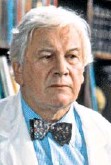Friday, 22 January, 1993.
LORENZO'S OIL. Co-written by Nick Enright. Based on incidents in the life of Augusto and Michaela Odone. Music supervision by Christine Woodruff. Co-written and directed by George Miller. Running time: 135 minutes. Rated Mature with the B.C. Classifier’s warning: "occasional coarse language."
OPERATORS ARE STANDING BY.
More than a movie, Lorenzo's Oil is a cause. Filmgoers can get involved by dialling the 1-800 number that appears on theatre screens at the end of the final credits.
The cause is ALD, short for the genetically-transmitted degenerative illness "Adrenoleukodystrophy." First diagnosed in the mid-1970s, it is a very rare, incurable terminal condition that strikes down little boys.
Taking up the cause, Australian director George (Mad Max) Miller tells us the true story of Lorenzo Michael Murphy Odone (Zack O'Malley Greenburg). Part telethon, part docu-drama, Miller's feature has the sort of self-righteous sincerity that actually makes it something less than a real movie.
Granted, the factual material is as inspirational as any fiction. Told that there are neither drugs nor a treatment for their 5½-year-old son's condition, Augusto (Nick Nolte) and Michaela Murphy Odone (Susan Sarandon) embark on their own personal research project.
Odone, an Italian-born economist based at the Washington headquarters of the World Bank, insists on knowing all there is to know about ALD. His equally intelligent wife refuses to give up on their ailing child.
Dedicated to self-education, the Odones learn that ALD falls into the category of "orphan diseases" — ones so rare that the major drug companies see no profit in developing cures.
Cosmopolitan (and financially well-to-do), the Odones discover that parents belonging to the existing ALD Foundation defer to the authority of its underfunded, uncommunicative medical professionals. They're told that "the Foundation is there for the parents — to comfort them, not to stir them up."
Not only do Augusto and Michaela stir things up, they develop a theory that leads to an effective therapy. "Lorenzo's oil," refined from natural grains, stabilizes their son, thus providing ALD victims with precious time to wait for researchers to develop a cure.
Having pointed the way to one breakthrough, the Odones organize "The Myelin Project" — call 1-800-8-MYELIN — in pursuit of that cure. Together with their now 14-year-old son, they are genuinely heroic.
Director Miller, who is also a medical doctor, has made a movie that offers a heavy-handed, occasionally hammy tribute to their courage. In the tradition of a disease-of-the-week telefilm, it bonks us over the head with its plot points and overdoes the visual sensationalism.
The above is a restored version of a Province review by Michael Walsh originally published in 1985. For additional information on this archived material, please visit my FAQ.
Afterword: Focused as I was on the cross-purposes evident in Dr. Miller’s movie, I neglected to mention Peter Ustinov’s character, Professor Gus Nikolais, the doctor who works hard to help the Odones while maintaining the professional detachment necessary to his job. A somewhat thankless role, it required him to be be a voice of reason in a story powered by the passion of Lorenzo’s parents in their drive for a miraculous cure. His character represents the dilemma of decent men caught in a medical system that prioritizes profit above all.
Has anything changed? Ten days before this posting, CNBC reported that “Pfizer CEO Albert Bourla sold almost $5.6 million worth of stock on Monday [November 9], the same day the drugmaker announced positive early data on its experimental coronavirus vaccine that sent shares soaring.” It’s an ill pandemic that blows no good for big pharma, after all.
As for Lorenzo Odone, he died of pneumonia in May 2008 at the age of 30, having lived two decades longer than originally predicted by doctors, albeit bed-bound and unable to move, hear, see or swallow. Although Lorenzo’s oil has been shown to delay the onset of symptoms in some patients, subsequent research has not clearly proven its long-term effectiveness in treating ALD after its onset. To date, there is no cure for the disease. The Myelin Project, founded in 1989 by Lorenzo’s parents, still exists. The passing years have seen a number of improvements in treatments available for ALD sufferers, among them stem-cell transplants and gene therapy.
Sir Peter’s Portion: Today’s four additions to the Reeling Back archive feature Peter Ustinov. Included are director Yves Boisset’s 1977 ensemble drama Un Taxi Mauve; John Guillermin’s 1978 Hercule Poirot epic Death on the Nile; Guy Hamilton’s 1982 Hercule Poirot feature Evil Under the Sun; and George Miller’s 1992 docudrama Lorenzo’s Oil. Previously posted is Michael Anderson’s Logans Run from 1976, in which Ustinov lends some gravitas to a sci-fi adventure.
